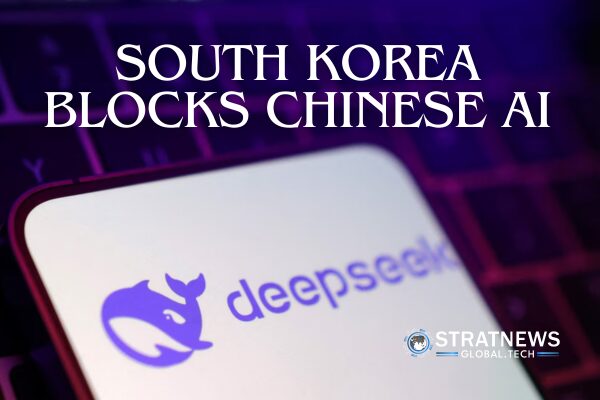South Korea Blocks DeepSeek Over Security Concerns
South Korea blocks DeepSeek, a Chinese artificial intelligence (AI) startup, citing security risks. The move follows a broader government directive urging caution in using AI services, including DeepSeek and ChatGPT, in official work environments.
Expanding AI Restrictions in South Korea
Several government agencies and companies have implemented similar measures:
- Korea Hydro & Nuclear Power blocked AI services, including DeepSeek, earlier this month.
- The defence ministry has restricted access to DeepSeek on military-use computers.
- The foreign ministry has limited access to DeepSeek on computers connected to external networks.
- Kakao Corp, a leading South Korean chat app operator, advised employees not to use DeepSeek over security concerns.
- SK Hynix, a major AI chipmaker, now limits the use of generative AI services and allows access only when necessary.
- Naver, a key South Korean web portal, has advised employees against using AI services that store external data.
DeepSeek Faces Global Scrutiny
South Korea blocks DeepSeek joining a growing list of governments imposing restrictions on Chinese AI. Australia and Taiwan banned DeepSeek from government devices this week due to security risks. Italy’s data protection authority blocked DeepSeek’s chatbot in January over privacy concerns, while the U.S., India, and other European countries are evaluating its implications.
Meanwhile, South Korea’s privacy watchdog plans to question DeepSeek on how it manages user data. DeepSeek has not yet responded to requests for comment.
AI Concerns Amid DeepSeek’s Rise
DeepSeek made headlines last month after launching AI models that it claims rival or surpass U.S. competitors while being far more cost-effective. This rapid rise has sparked global concerns over data security and privacy, particularly in countries wary of Chinese technology influence.
As AI adoption accelerates, governments and businesses worldwide are tightening controls on foreign AI tools to mitigate potential security risks.
with inputs from Reuters


